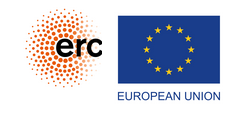Piret Peiker participated in the international ASEEES (Association of Slavic, Eastern European and Eurasian Studies) Annual Convention, held in San Francisco, 23.11.– 26.11. 2019, with “Belief“ the convention topic of the year.
Peiker gave a presentation titled “If You Believe in Yourself, Then You (Will) Believe In the People“, and a talk as part of the round table discussion “A Nation Adrift: The 1944-1945 Wartime Diaries of Miksa Fenyö“ .
The first presentation took as its starting point the lines of one of the most popular songs of the Estonian anti-Soviet “Singing Revoltion“ and the conception of time expressed there, employing it to discuss the intellectual history of collective-individual relationships in Estonia. The round table focused on the edited volume of the same title, comprising the diaries of a Hungarian political and cultural figure of Jewish origins, a leading promoter of literary modernism in Hungary before and during the interwar period.



